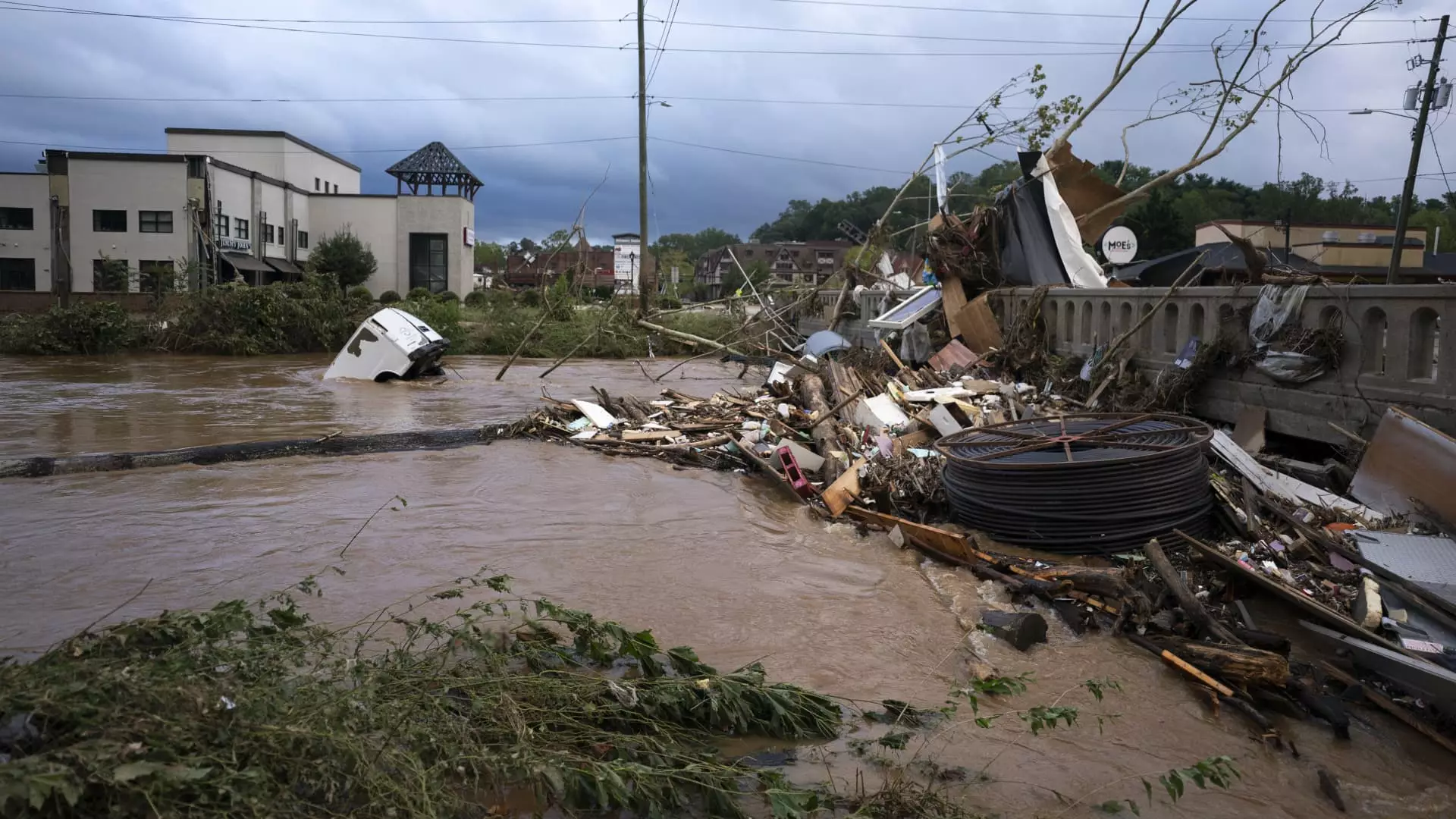In the wake of Hurricane Helene, authorities in the affected states are issuing critical warnings to residents about potential scams. Such disasters often create a breeding ground for unscrupulous behavior, particularly in the form of price gouging and various fraudulent schemes. As communities grapple with the aftermath of the storm, it becomes imperative for individuals to stay alert and informed to protect themselves from exploitation.
Price gouging typically occurs when sellers inflate the prices of essential goods and services disproportionately to meet demand during emergencies. This unethical practice is especially prevalent in areas hit hard by natural disasters, as the desperation for necessities like food, fuel, and shelter opens the door for opportunists looking to profit from others’ misfortune. To combat this, many states—including North Carolina, Florida, and South Carolina—have enacted anti-price gouging laws that come into effect during disasters.
North Carolina Attorney General Josh Stein recently reported a surge in complaints regarding price gouging in his state, emphasizing that over 100 complaints related to inflated prices for items like gasoline and groceries were received shortly after the hurricane hit. Such dramatic price increases, as highlighted by consumer watchdogs, can turn a modest five-dollar case of bottled water into a ten-dollar burden, or balloon the cost of tools like chainsaws from a manageable hundred dollars to an outrageous five hundred.
While price adjustments are part of free market dynamics, there are clear ethical lines that should not be crossed in times of crisis. Teresa Murray, the director at the U.S. Public Interest Research Group, points out that “you know it when you see it,” indicating that certain price spikes are glaringly obvious and warrant scrutiny.
Moreover, the landscape of anti-price gouging measures varies significantly across states, with some lacking any legal framework entirely. As the federal government considers more robust solutions, including proposals for a national ban on price gouging, the conversation surrounding the balance between protecting consumers and ensuring the livelihoods of businesses continues to evolve.
Beyond price gouging, consumers must remain vigilant against a range of scams that often arise in the wake of such disasters. State attorneys general have advised residents to be cautious of individuals impersonating officials from agencies like the Federal Emergency Management Agency (FEMA) or the Small Business Administration (SBA). These con artists may use high-pressure tactics to solicit personal or financial information, falsely asserting that their services require payment.
If approached with dubious offers, residents are encouraged to reinforce personal safety measures by not divulging sensitive information and verifying any claims through official channels. Recognizing that legitimate aid organizations never request donations upfront can further shield individuals from deceitful practices while emphasizing the importance of scrutiny among competing charities seeking donations.
With homes in need of repairs, door-to-door solicitations can be particularly concerning. Storm recovery creates an atmosphere ripe for contractors looking to capitalize on urgency, and residents must be cautious when dealing with offers requiring full payment upfront. It is advisable that homeowners consult with their insurance providers before proceeding with repairs, as this can mitigate potential financial pitfalls and ensure that they’re engaging with reputable contractors.
For those considering purchasing a vehicle, the risk of acquiring flood-damaged cars is a notable concern post-disaster. Consumers must exercise due diligence in verifying a car’s history, utilizing resources like the National Insurance Crime Bureau’s VINCheck service to confirm origins and previous conditions. Proper research can save buyers from significant future costs linked to hidden damages.
Protecting Your Generosity from Charity Scams
In the spirit of community support, many individuals feel compelled to donate to relief efforts following disasters. However, the presence of charity scams necessitates vigilance among potential donors. To ensure that contributions reach intended recipients, individuals should take the time to investigate charities using websites like Give.org or CharityNavigator.org to confirm their legitimacy.
An attitude of skepticism and a penchant for critical thinking can go a long way in protecting oneself from the pain of loss, whether it be from damaged homes or inflated prices during a crisis. Ultimately, remaining informed, cautious, and proactive will empower individuals to navigate the post-Hurricane Helene landscape safely and supportively.
As communities rebuild, they must also fortify their defenses against scams. Collective awareness and individual action can create a stronger safeguard against potential exploitation, fostering resilience as residents rise from the challenges presented by Hurricane Helene.

